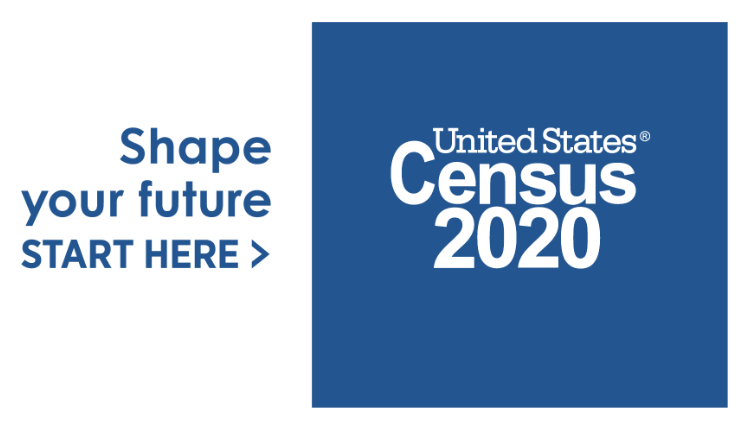The critical importance of the upcoming U.S. census
February 10, 2020
Latham Centers is committed to doing our part to spread the word out about the critical importance of the United States census. We’ve compiled key points below and hope you’ll join us in advocating for every person to respond.
From the Disability Rights Education & Defense Fund:
What is the Census?
The United States Constitution requires the census. It is an accounting of the U.S. population conducted every decade, in years ending in “0” since 1790. The U.S. conducted the last census in 2010. The next census is in 2020. For the first time, the U.S. will use the internet to encourage participation.
A detailed census—and the collection of data about who lives in the United States and where—is important for electoral representation, health care, housing, and education.
Why is an Accurate Census Important?
An accurate census count directly affects our nation’s ability to provide equal representation and equal access to more than $600 billion a year in important governmental resources for all Americans, including people with disabilities.
An accurate census helps federal agencies monitor discrimination and implement civil rights laws that protect voting rights, equal employment opportunity, and more.
An accurate census assists state and local leaders in identifying and addressing emerging needs for health care, education, housing, food and income security, rural access to broadband, and other community needs.
Perhaps the most important role of the census is population apportionment, or an accounting of how many people live where. Apportionment determines how the 435 members of the House of Representatives is divided among individual states. Unlike the number of senators, of which every state has two, the number of representatives per state are determined solely on population.
Why the Census Is Important to the Disability Community
Community leaders and elected officials rely on accurate census data to make funding decisions about education, senior citizen and veteran supports, and other community allocations. It is important to get the numbers right, everyone—including people with disabilities—must be counted.
According to the CDC, people with disabilities make up 26% of the US population. The decennial census, not CDC estimates, determines allocations for real-life necessities, like health care, Supplemental Nutrition Assistance Program (SNAP), special education grants, and Medicaid.
Medicaid, State Children’s Health Insurance Program (S-CHIP), Head Start and Early Head Start, highway planning and construction, and our nation’s foster care programs are among the top 16 largest federal programs whose funding—totaling nearly $600 billion a year—depend on census data.
Special education grants provide resources to disabled students, tailored to their individual needs. If the U.S. Census Bureau does not conduct a full and accurate count, administrators of special education programs will have no way of knowing how many children they must teach, which school districts need more educators, or what communities need more schools.
Census figures help advocates, community leaders, and elected officials address disparities in housing, health care, employment, and education. Fair proportionate voting representation depends on valid census data, as does the enforcement of voting rights laws. The health and wellbeing, and the political power of all communities, rests on a fair and accurate census count. Elected officials cannot make informed decisions about how to allocate federal tax dollars fairly and effectively without an accurate accounting of the population.
As such, an accurate census count is essential in ensuring people with disabilities who need these necessary supports and services participate in the census.
Source: https://dredf.org/2020-census-disability-community-toolkit/
From The Arc:
The Arc of Massachusetts is collaborating with its partners in the disability community to help ensure a fair and accurate count of people with disabilities in the 2020 Census. The Census Bureau is taking proactive steps; the Bureau has identified people with disabilities as a hard-to-count population, which means they are at a greater risk of being undercounted in the census. The reasons for this include accessibility challenges and wider systemic inequalities. A fair and accurate census is vital for people with disabilities—and for every person in the United States. “When there isn’t enough money, services and programs for people with disabilities can be cut.” Thank you to The Arc for the helpful online resources at https://thearcofmass.org/census!
Information about the 2020 Census is available at https://2020census.gov/en – including privacy and security, ways to respond, and why your answers matter.
Collecting Responses:
The Census Bureau will initially collect responses from people for the 2020 Census in three ways: online, by phone, and by mail.
-
By April 1, 2020, you will receive an invitation to participate in the 2020 Census. Once the invitation arrives, you should respond for your home.
-
Starting in May 2020, the Census Bureau will begin following up in person with homes that have not responded to the census.


